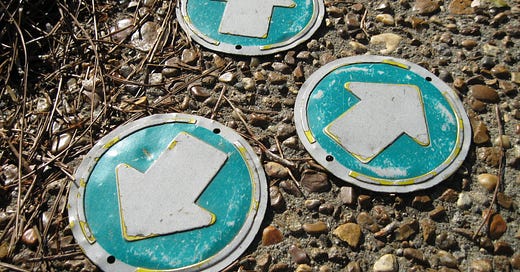Recap: Alternatives to Traditional Essays
Instructors have been experimenting with a wide range of alternatives to the take-home essay, a process that the advent of generative AI has only accelerated. What can these alternatives look like?
Earlier this week CETL hosted a virtual faculty panel on alternatives to traditional essays. As we wrote in the panel description, there is much value in the traditional essay, but it's not always the only, or even the best way to accomplish our teaching goals. Our three panelists, all very thoughtful instructors, shared their experiences exploring essays alternatives, and I'm excited to share a few highlights from the conversation here on the CETL blog.
Kate Lechler, online lecturer in English, shared the structure of their final project assignment, one that gives students choices for both content and presentation. Briefly, content choices include coming up with an original interpretation of a text, compiling an annotated body of research involving primary and secondary texts, or creating a fictionalized dialogue demonstrating two sides of an issue. Students may present their work as a traditional research paper, but they may also choose from making a podcast, a narrated slideshow, a website, a short story, a comic, a television script, and more. Since "everything is a text," as Kate said, students can select a presentation modality they want to explore or perhaps one they already know well. Kate spends the last week of the course having students share their projects with each other, and I would argue that these creative projects are more "shareable" than traditional essays.
Rebecca Marchiel, associate professor of history, teaches a United States history introductory survey course (1865 to present) in which the students have a similar choice for the format of their final projects but the content of those projects is more directed. Rebecca asks students to conduct an oral history with someone they know who was born before 1975 and then connect that interview with a secondary source, that is, a peer-reviewed source written by a historian. The goals of the project are to help students see the people in their lives as connected to history and to give students a way to show mastery without writing, since students can produce their project as a podcast, video, scrapbook, or whatever. Or a traditional written essay, if that's their choice. Regardless of modality, students have to make a short reflection on the project. I've found that this kind of post-project reflection is a key component of non-traditional assignments.
Sidebar: If you're interested in the reverse of this, where the content of a student project is more open-ended but the presentation format is more directly, see "Building a Better Podcast Assignment," a blog post I wrote about the student-produced podcast in my first-year writing seminar.
Angela LaGrotteria, instructional assistant professor of gender studies, has found that the norms of traditional academic writing can make it difficult for students to engage deeply with her course material. She asks her students two or three times each course to write her a reflective letter instead of a traditional essay. For example, in the second or third week of an intro to gender studies course, she will ask students to write her a letter reflecting on what gender studies and/or feminism means to them and what they want to get out of the course. During our panel, Angela read a powerful excerpt of one of these letters connecting a "What Is Feminism?" video from the course to his mother's experience as a single, working woman. Angela noted that students sometimes express hesitation at this form of writing, preferring to "cling" to a more academic style. The letters, however, help so many students find personal connections to the material (that is, find "task value," to use some educational lingo) that she encourages students to give it a try.
Thanks to our panelists for sharing their non-traditional assignments and for such a fantastic conversation this week! And if you're interested in using alternatives to traditional essays at the University of Mississippi, please reach out to CETL. We would love to help you think through how to implement these kinds of assignments.





